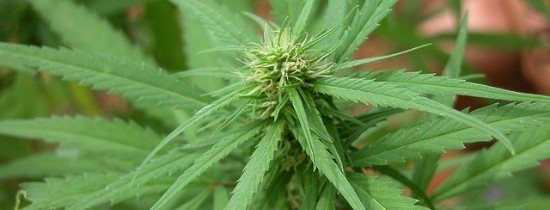Daily Marijuana Use Doesn’t Really Change Brains of Adults or Teens, Study Finds
Last year, the press and marijuana-legalization opponents gave a lot of attention to a study suggesting that daily marijuana causes abnormalities in the brain.
New research, reportedly using better techniques, indicates that claim and other reports of cannabis-caused changes to brain structure simply aren’t true.
The authors of the new study, “Daily Marijuana Use Is Not Associated with Brain Morphometric Measures in Adolescents or Adults,” published in the latest edition of theJournal of Neuroscience, suggest that alcohol use was responsible for previous studies finding brain changes.
An abstract of the study’s findings was published last week on the Journal’s website. It describes how scientists could not replicate recent research that claimed the use of cannabis “is associated with volumetric and shape differences in subcortical structures…”
The study was conducted by a team of six researchers including Barbara Weiland of the Psychology and Neuroscience department at the University of Colorado, Boulder, and Brendan Depue of the University of Louisville in Kentucky.
The MRI brain-scan reports of 29 adults and 50 adolescents who use marijuana daily were compared with MRI scans of the same numbers of adult and teen non-users of marijuana.
“Groups were matched on a critical confounding variable, alcohol use, to a far greater degree than in previously published studies,” the abstract states. “We acquired high-resolution MRI scans, and investigated group differences in gray matter using voxel-based morphometry, surface-based morphometry, and shape analysis in structures suggested to be associated with marijuana use, as follows: the nucleus accumbens, amygdala, hippocampus, and cerebellum. No statistically significant differences were found between daily users and nonusers on volume or shape in the regions of interest.”
The research team indicates that the lack of differences was so striking, there was no sign of even a “modest effect.”
Locally, the new study means that MATFORCE, the Yavapai-county-based group fighting a potential 2016 cannabis-legalization measure, needs to update its propaganda. According to a recent “fact” sheet by the group, studies show “marijuana use causes damage to the developing brain, including a loss of IQ points.”
The part of about pot use and teen IQ had already been debunked at the time MATFORCE published its information. Research suggests those results may also have failed to fully taken into account the use of alcohol.
UPDATE 2 p.m.:
One area of the brain the new study didn’t look at was the orbitofrontal cortex. That little-understood region of the brain could be damaged by marijuana use, according to a study released late last year led by Francesca Filbey of the University of Texas, Dallas.
We asked Filbey today if her study controlled for alcohol, too — she said it did.
“In our paper, we performed 2 analyses. One without controlling for other substances like alcohol and another by excluding individuals with any other substance, such as alcohol and nicotine. Both analyses showed the same,” she replied.
The orbitofrontal cortex is believed to help control a person’s decision-making ability and perceived rewards and punishments for certain activities. It’s an important part of the brain when it comes to substance addiction, so physical changes there could be crucial.
On the other hand, regions of the brain studied by the Colorado and Kentucky researchers also help control decision-making — and just about everything else, including short-and long-term memory. No observable changes for these four important areas waters down claims that using marijuana creates brain abnormalities, it seems to us.
Still, we left a message for Weiland, asking why her study didn’t look at the orbitofrontal cortex. We’ll let you know if she responds.











